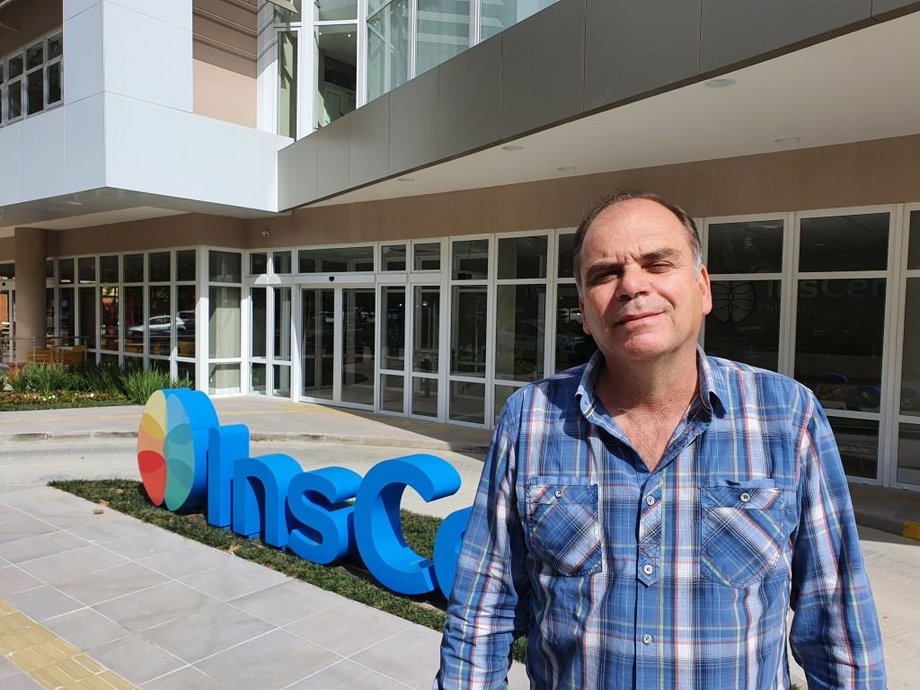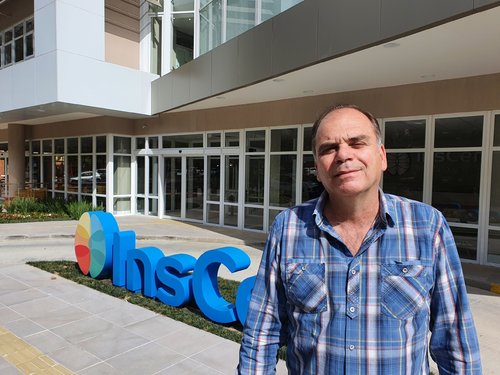Marcos Barros celebrates 31 years at home!
Collaborator Marcos Barros, better known as Engineer Marcos, has just reached a professional cycle to celebrate: 31 years at home! This trajectory started there in 1989 and extended throughout all these years, with challenging and intense experiences, which brought you an interesting as well as heterogeneous baggage. He participated in the creation of Tecnopuc, managed the Raiar incubator, coordinated the former Faculty of Engineering and then arrived at the Instituto do Cerebro do RS even before it was inaugurated with the objective of assisting in the process of planning the construction of a complex and hybrid enterprise . In this last year, the professional dedicated himself to the project to expand InsCer, recently inaugurated, and evaluates what lies ahead as a challenge. “I have already worked on several innovative initiatives at the University - and certainly InsCer is the most fascinating project I have participated in.”
Learn a little more about the history of Engineer Marcos.
Which department did you start working in within the Institution?
My beginning at PUCRS was in the Engineering - Projects Area of the Electronics Laboratory (LABELO).
What places have you been to on this long journey?
After LABELO I was allocated to the area of projects with companies of the Institute for Scientific and Technological Research (IPCT). From IPCT I went to work on the creation and operation of AGTPI - area of negotiation of institutional projects (Agency for Technological Protection and Intellectual Property). I participated in the creation of TECNOPUC (Technological Park) and I was given the role of managing the Business Incubator (RAIAR). In the restructuring of IPCT now as IDEIA, I acted as a facilitator and interface for the Institute's pre-incubated academic projects. With the reformulation of the Faculty of Engineering (FENG) I worked as an administrative coordinator taking care of the infrastructure activities of the seven FENG courses. Finally, 10 years ago, I came to work on the operation and project management of InsCer, now working only in the Engineering area of the Image Center and monitoring the expansion project (PHASE II) of the Institute.
When did you get to InsCer? For what purpose?
I arrived in 2010, with the objective of working on the Institute's project management - in the prospecting, monitoring and operation of the project submitted to Finep. After the inauguration of the 1600m² building, I was assigned to work on the operation of the building's imaging equipment and facilites.
Did the inauguration of the expansion work for InsCer bring you many challenges?
The project certainly brings challenges both from a technical point of view, as well as from the point of view of its sustainability. The triplication of the area will bring us challenges in business models, people management and especially in becoming a reference in the country's neurology area, bringing technical knowledge closer to the Institute's assistance activities. This multidisciplinary and translational proposal from the Institute is undoubtedly, in my view, our greatest challenge.
Very few people complete such a long time at home, how do you feel about being that “rarity”?
I consider myself a motivated person at work, always trying to update myself and trying to be useful to each activity in which I get involved. To this end, I graduated in electronic engineering, I specialized in Agents of Innovation and Technological Diffusion and Project Management and Master in Biomedical Engineering. This multidisciplinary trajectory and the fact that I always live with different people help me in my professional life.
What is positive about being in the same company for so long?
The institution has always emphasized the look and appreciation of the family, inspired by Marist values. Certainly the constant need for professional updating and the vision of the future attracts me a lot in this institution. Also the possibility of working on several projects with national and international companies (small companies - in the management of Incubadora Raiar) allowed me to pursue a career as an Engineer and professor in the area of Entrepreneurship. This profile led me to work in several innovative initiatives at the University, and InsCer is certainly the most fascinating project I participated in, becoming a differentiated and active professional in a health area so lacking in resources and innovations.
And the future, how do you see it?
As a future I hope to continue to realize the dream of the InsCer project. I see as a challenge the internationalization of the Institute, its sustainability and the ability to capture and generate projects relevant to society. I want to participate in this. For this, I need to have an entrepreneurial and innovative vision, always using cutting-edge tools and mainly acting with respect to the Institute's professionals. After all, the future will be made possible by people and not by equipment and tools.



